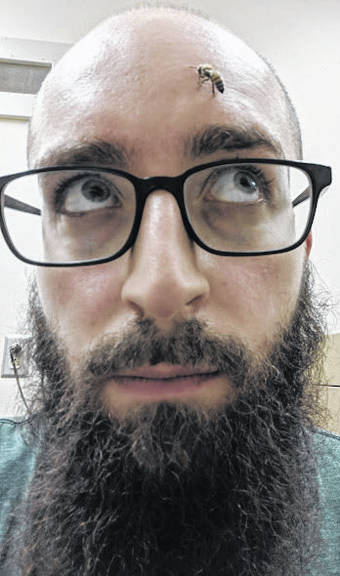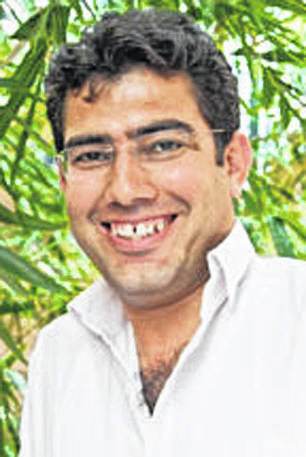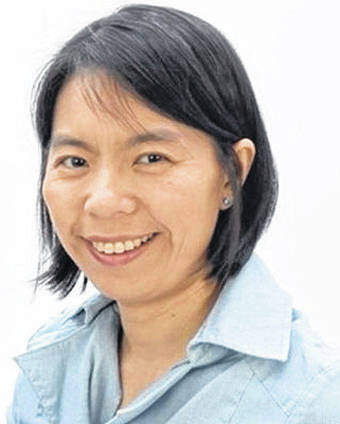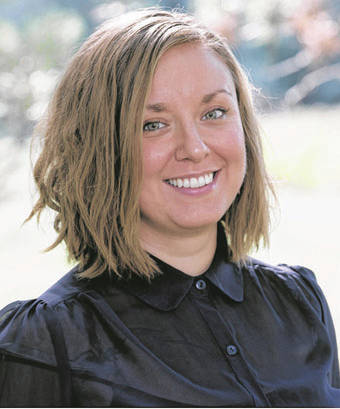



WILBERFORCE — There’s a new buzzword on the Central State University campus.
Beekeeping.
With the bee population declining around the world, CSU is hoping its “Beekeeping Happy Hour Webinar Series” — open to the public — will help change that. Beginning at 6 p.m. tonight, virtual attendees can learn about bee management and research from several nationally known bee experts. Hosted by Assistant Professor of Entomology Dr. Hongmei Li-Byarlay, the free one-hour sessions — all on Wednesdays — will have different topics each day.
Li-Byarlay, an expert in bee genetics, social behavior, and physiology, said bees are necessary for myriad reasons.
“Beekeeping is where science meets agriculture, and there is an art to raising bees,” she said in a release from CSU. “We need bees for our agriculture and environment because they are important pollinators for fruits, vegetables, and crops. One third of our food are pollinated by bees. Honeybee colonies provide lots of products for human including honey, beeswax, propolis, pollen (bee bread), royal jelly and bee venom. So learning how to keep bees in a sustainable way is important for our environment. We have to protect them. These seminars will help participants learn about sustainable beekeeping, new information about bee pathogens, parasites, and bee hives.”
Each session is unique and logging in to each one is not required, according to Cindy Folk, CSU Extension program leader of agriculture and natural sciences. No previous beekeeping experience is necessary.
“For the average citizen, the webinars are an opportunity to learn more about honey bees, how they behave, and what we are doing to improve their health,” Folck said. “Those who are beekeepers will learn about new technology and research that will help them take care of their hives. There’s no prerequisite for bee knowledge for the webinars. Most people will learn something new about honey bees and research that working to improve bee populations.”
The first session is “How to Use Swarm Traps to Capture Feral Bees?” This presentation will focus on the swarm behavior and biology of honeybees, how bees vote for swarming, and how to set up swarm traps to catch bees. Additional information about feral bees will also be presented.
The June 17 session is “What Is Deformed Wing Virus Really Doing To Your Bees?” and is being led by Ian Traniello from the University of Illinois at Urbana-Champaign. Crop pollination by the western honey bee Apis mellifera is vital to agriculture but threatened by alarmingly high levels of colony mortality. These massive, ongoing losses are due, in part, to high levels of infection with deformed wing virus (DWV), transmitted by Varroa destructor mites, which can wreak havoc on honey bee foraging patterns and contribute to the breakdown of a colony. This seminar will cover all of the basics and is specifically intended for beekeepers who are interested in a deeper understanding of how common viruses might be affecting their bees.
The July 1 session, “Honey Bee Queen And Virus Infections: Transmission Routes And Consequences,” will be led by Dr. Esmaeil Amiri from the University of North Carolina at Greensboro. He will discuss multiple transmission routes that viruses use to infect the queen and also the pathogenicity and direct impact of viruses on the queen’s phenotype. More than 30 viruses have been discovered from honey bees, which have evolved numerous strategies to infect queens either via vertical transmission from the queens’ parents or horizontally through the worker and drones with which she is in contact during development, while mating, and in the reproductive period in the colony.
The July 15 webinar is “Stay Cool: How We Can Use Honey Bee Thermoregulation To Keep Better Bees.” During the session, Dr. Chelsea Cook from Arizona State Universityand Marquette University will focus on how honey bees work collectively to regulate colony temperature in the summer, and how cold winters provide necessary “down time” from foraging that may support colony health. European honey bees have evolved to manage colony temperatures across a broad ambient temperature range. This temperature management, or thermoregulation, is always performed by groups of bees coordinating to either cool or warm the colony.
To receive log-in information, email Folck at [email protected].





